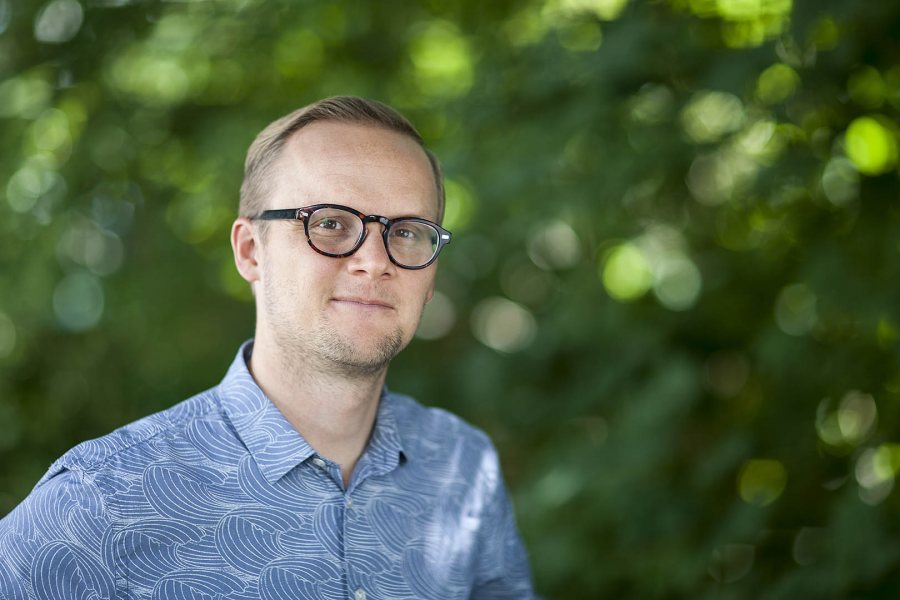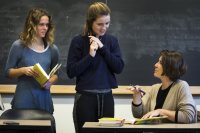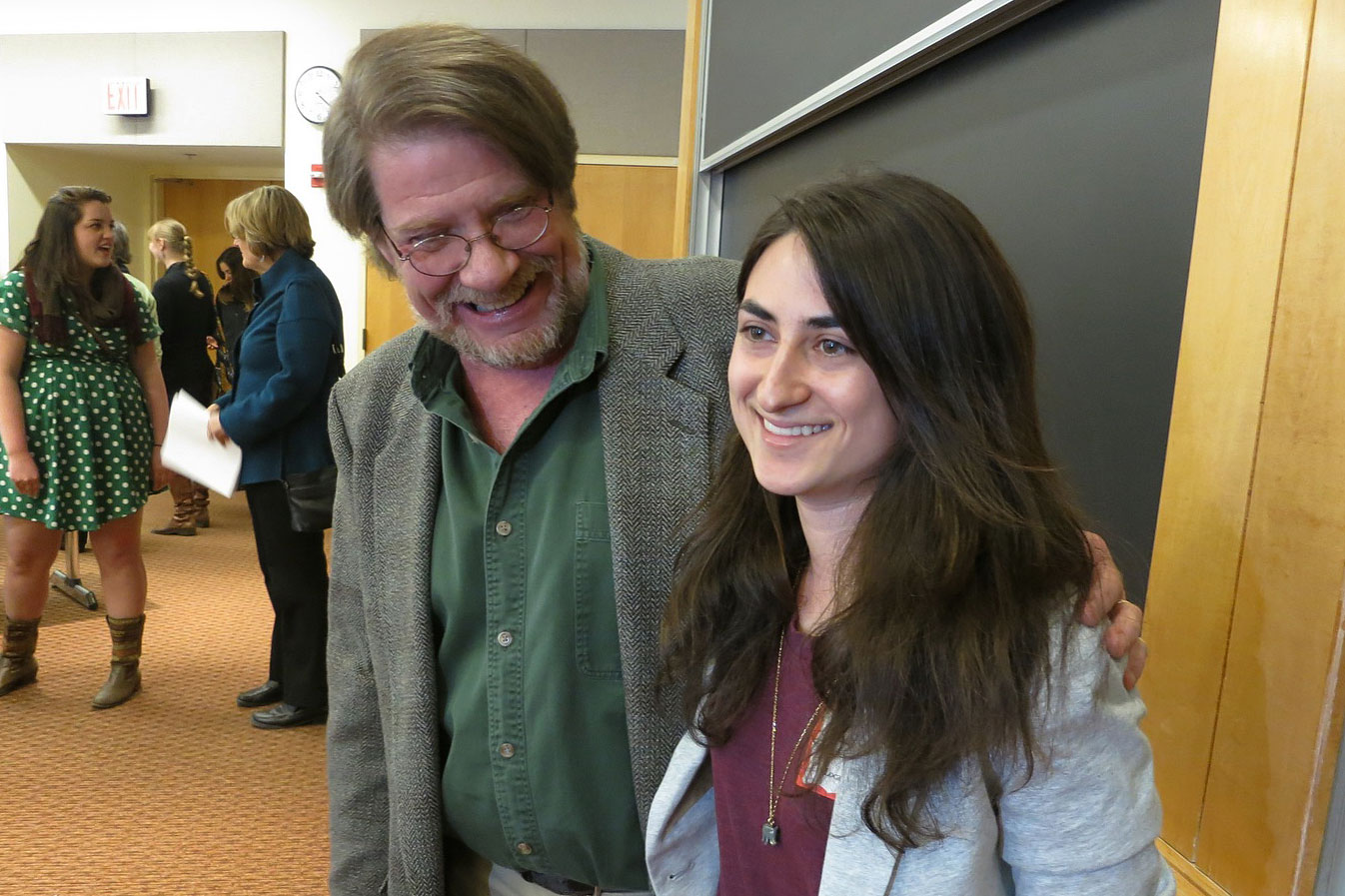
Linguist, language rights advocate Daniel Sanford takes Writing at Bates helm

Recently appointed as director of Writing at Bates, Daniel Sanford comes to Maine from New Mexico. (Josh Kuckens/Bates College)
A linguist and ardent advocate of language rights, Daniel Sanford has been appointed director of Bates College’s Writing at Bates program, as well as director of the college’s new Academic Resource Commons.
Sanford began at Bates Aug. 1, following 13 years at the University of New Mexico, where he served most recently as director of the award-winning Center for Academic Program Support.
“Dan is deeply experienced in both writing program administration and, more broadly, the oversight of student support centers,” said Matthew Auer, vice president for academic affairs and dean of the faculty at Bates.
“We welcome his keen intellectual engagement, his strong record as an academic support leader, his commitment to student success, and his already palpable collegiality.”
“I’m honored to serve as the director of Writing at Bates, leading the staff in supporting students in their growth as writers, and faculty in the use of writing in their courses,” said Sanford.
“I’m fascinated by the role that writing plays in the transformative experience of a liberal arts education, and I believe strongly in the power of writing to help individuals to access communities both within the academy and in the world beyond it.”
He said, “I’ve always wanted to work at a college like Bates — an intimate community where there is a close relationship between faculty and students.” Sanford added that he was also drawn by Bates’ longstanding commitment to diversity and inclusion. “Bates has realized that commitment in very impressive ways.”
Strongly intentional about developing students’ abilities to communicate through the written word, the Bates curriculum is bookended by writing. First-Year Seminars ground students in college-level writing. Bates’ distinctive senior thesis program is the culmination of a student’s writing for Bates. Along the way, students are required to take courses designated as writing-intensive.
Sanford directs a staff of writing specialists who support both faculty and students. In addition, Writing at Bates incorporates a large team of peer writing and speaking assistants, students who help students.
Situating support for both faculty and students in one office, Sanford says, “is a unique model that I’m lucky to have inherited. We’re supporting the teaching of writing in the classroom, and supporting students as they use writing in their courses, in order to approach writing from both sides — and hopefully make a real difference.”
Still in development at Bates, the Academic Resource Commons coordinates Writing at Bates, the Mathematics and Statistics Workshop, and other resources for learning and teaching. “A goal is to converge all of our resources in one central area so that students and faculty have a clear idea of where to go for support,” Sanford explains.
At the University of New Mexico, Sanford headed the Center for Academic Program Support for two years, following stints as associate director of CAPS and, before that, head of the writing center within CAPS.
Sanford is particularly proud of two achievements as CAPS director. For one, he broadened the writing center’s mission to support student writing in not just English, but in all languages taught at UNM — including Spanish, Italian, French, Chinese, and Navajo.
He also shifted the advising emphasis away from one-on-one sessions with students to working in groups. “That change, I think, fit well with the goal of writing centers to treat writing as a process rather than a final product, and to encourage students to engage with one another over writing.”
Sanford became involved in writing center and academic support work while working toward a doctorate in linguistics at UNM. He earned an undergraduate degree in classics and linguistics at the University of Wisconsin.
An active scholar, Sanford conducts research in cognitive science and linguistics, composition studies, and language rights. Sanford says that while it’s more common for writing specialists to have backgrounds in composition or English, his training in linguistics has served him well.
“As students come in from a whole host of international backgrounds and U.S. dialects, and move toward the fluencies we’re trying to teach them, understanding typological differences across languages can help bridge those boundaries.”
Sanford adds, “A lot of the work that I do in writing centers is through the lens of language rights. So I’m thinking about students having the full right to use the languages that they grew up with as a way to navigate the world — and how we can help empower them in that.”
“When you have an institution like Bates that’s so intensively committed to diversity of many types, it’s important to engage with writing in a way that allows every type of student from every background — linguistic, cultural, and national — to fully access everything here.”
Sanford lives in an 1850s farmhouse in South Paris, Maine, with his wife, a landscape artist, and their two daughters. In his spare time, he enjoys reading, running, hiking, and biking.




